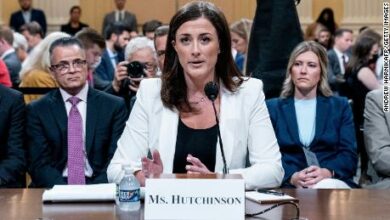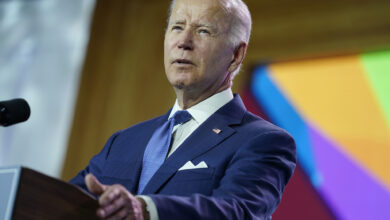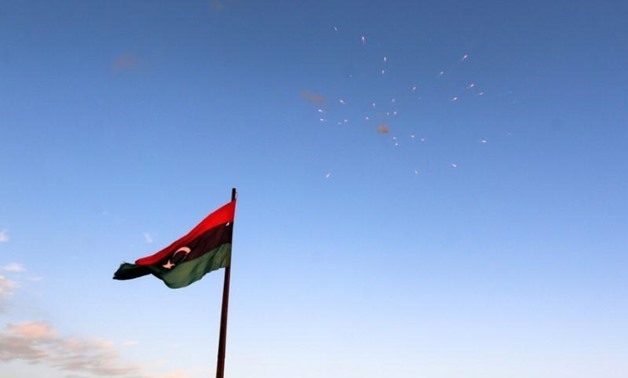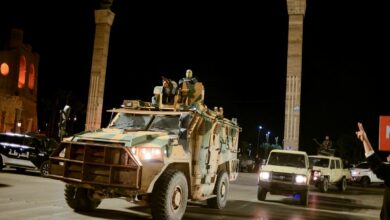When President Mohamed Morsy made a speech opening the Shura Council’s 33rd session, members interrupted him 10 different times with rounds of applause, despite the council’s own bylaws banning applause during speeches.
Their collective glee might be attributed to the legislative powers they just acquired from Article 230 of the recently adopted constitution, which grants the Islamist-dominated Upper House of Parliament the power to legislate until a new House of Representatives is elected.
Since its inception in 1980, the Shura Council has only played a consulting role in lawmaking. Today, its power to legislate grants gives it unprecedented authority in the midst of ongoing controversies about its makeup, and the very legality of its existence.
A problematic makeup
The opposition says the current Shura Council isn’t representative of society — only 7 percent of eligible voters came out to participate in elections for the council last March. That turnout pales in comparison to the 60 percent of voters who participated in the elections for the People’s Assembly held just two months prior. Analysts say constituents may not have been motivated to vote in the Shura Council elections given the body’s lack of power at the time.
The charge of lack of representation is extended to those members appointed to the council, as well. Only a few days before the new constitution came into effect, the president appointed one third of its 270 members, as stipulated by the Supreme Council of the Armed Forces’ March 2011 constitutional declaration, passed after the toppling of the Mubarak regime.
Morsy’s appointees include 21 Brotherhood members, 14 Salafis and 21 members from parties that have alliances with the Brotherhood, including Ghad al-Thawra. The non-Islamist parties that are represented have been criticized for not representing genuine opposition to the Brotherhood, since they didn’t join other liberal and secularist parties in walking out on the Constituent Assembly in protest against the Islamist hegemony over the draft constitution.
Bassem Kamel, former MP for the Egyptian Social Democratic Party, says the appointments made by the president were a political reward for certain factions of the opposition, and adds that the genuine opposition which has mobilized the people over the past months, such as the National Salvation Front, was kept out of the Shura Council.
Ahmed Abdel Rahman, a Freedom and Justice Party (FJP) leader and one of the appointees, rejects those accusations.
“The president’s choices were fair and balanced. The National Salvation Front rejected the dialogue to which the president invited them one week before the referendum on the constitution,” he says.
Furthermore, despite Article 232 of the new constitution, which prohibits former ruling National Democratic Party (NDP) leaders from practicing politics, some appointees who belonged to the NDP still hold seats on the Shura Council.
One example is Reform and Development Party member Mohamed Badawy Desouky, who was the NDP’s candidate for the Giza Governorate in the 2005 and 2010 parliamentary elections. Reform and Development Party member Fadeya al-Mezainy was the NDP’s candidate in South Sinai in 2010.
Constitutional expert and Shura Council appointee Ramadan Bateekh argued that it is not possible to apply the constitution retroactively to former NDP Shura Council appointees, as Morsy appointed them before the constitution officially came into effect.
Critical legislation
Eighty-one of the new constitution’s 234 articles refer unresolved issues to lawmakers, which means it has been left to the legislator to make the rules for several issues pertaining to rights and freedoms, as well as the functioning of state institutions.
Until parliamentary elections are held — which are legally supposed to take place within 60 days of the enforcement of the new constitution — the Shura Council is expected to pass some critical laws, such as a law governing the Supreme Constitutional Court (SCC) and a law organizing the upcoming parliamentary elections.
Civil powers fear the Islamist-dominated council will be a tool in the hands of the Brotherhood, one that could be abused to pass laws that further tighten its grip on state institutions.
Kamel claims that if the Shura Council had a liberal majority, the constitution would have not granted it temporary legislative powers in the first place.
But Abdel Rahman dismisses these fears as exaggerations. “There is little time, and the Shura Council will not be able to discuss all laws within two months. The council will only determine legislative priorities and issues whose constitutional statuses require regulation,” he says.
Bateekh described these priorities as ones that will aid in “mapping the next phase in order to ensure constitutional legitimacy.”
He said there are three priorities on the council’s agenda for the coming few weeks. The first one pertains to changing the regulations of the Shura Council so as to be in line with its new legislative role. The Shura Council consists of 270 MPs divided over nine committees, whereas the People’s Assembly included 508 MPs divided into 19 committees. The council will have to determine the correct procedures and hierarchies to write and pass laws.
The second priority will be drafting the law for the election of the House of Representatives.
The third priority will be to amend Law No. 79 of 1976, which regulates the work of the SCC. The constitution has curtailed the court’s powers by cancelling its oversight of presidential, parliamentary and municipal elections, and also reduced the number of its members from 18 to 11.
Political commentator Hamdy Rizk believes that these changes are critical for the consolidation of the power of Islamist groups, especially the Brotherhood.
“Amending the SCC law aims to continue the series of assaults on the judicial authority which Morsy has started; but this time, it will be under a constitutional cover,” Rizk says.
“I expect that the law will change the identity of the court, especially because it is considered to be the most important buffer between the executive and legislative authorities. How will it continue in this way after both authorities have become two sides of one coin?” he asks.
Meanwhile, this week media outlets circulated a draft law regulating protests that they attributed to the Shura Council. The contentious draft gives the police the right to attend political meetings and to cancel them if they determine they could be destabilizing to the public order.
The draft would only permit protests to be held from 7 am to 7 pm; violators of the law would be sentenced to a minimum of one year in prison and fined a minimum of LE30,000.
The Shura Council denied any responsibility for the draft law, but political forces says that it is plausible that the council would be discussing something along those lines, given Morsy’s need to contain protests due to deteriorating economic conditions.
Ehab al-Kharrat, chairman of the Human Rights Committee at the Shura Council and a member of the Egyptian Social Democratic Party, told Al-Masry Al-Youm that the draft law was issued by human rights committee members who belonged to the FJP.
Essam al-Erian, deputy head of the FJP and majority leader for the Brotherhood’s Shura Council bloc, denied Kharrat’s statement and claimed the bill was a Cabinet proposal.
Contested legality
But all these potential laws are pending a court ruling. The SCC is scheduled to rule in a case contesting the validity of the Shura Council on 15 January. The SCC had earlier dissolved the People’s Assembly in June 2012 on the grounds of the unconstitutionality of some articles of the Parliamentary Elections Law — the same law that governed the election of the Shura Council.
When Morsy replaced the 22 November Constitutional Declaration — in which he made the Shura Council immune from judicial dissolution — with an amended declaration on 9 December, he did not make it clear whether the Shura Council was still immune.
While some legal analysts say it could be possible for the SCC dissolve the Shura Council, Bateekh said the council’s legal status is sound.
“The SCC will issue its laws according to the new constitution,” he says. “How could it issue a ruling on an elections law that was based on a cancelled constitutional declaration?”
This piece was translated from Arabic by Dina Zafer and Mai Mohsen.
This piece appears in Egypt Independent's weekly print edition.




